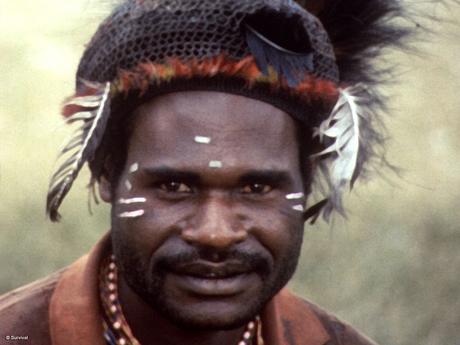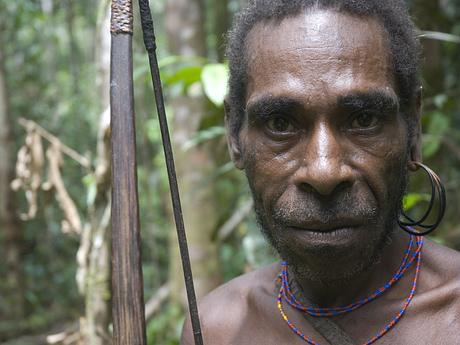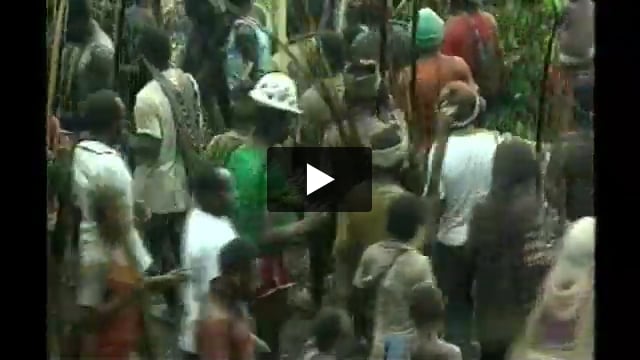HIV/AIDS set to soar in West Papua
November 18, 2008
 © Survival
© SurvivalThis page was last updated in 2008 and may contain language which is now outdated.
A recent investigation by the Al Jazeera programme ‘101 East’ has shown the devastating impact of the HIV/AIDS crisis amongst the tribal people of West Papua, Indonesia.
West Papua has the highest HIV/AIDS infection rate outside Africa: 3% of the population are now infected with the virus, and experts fear that by 2025 that figure will rise to 7%. Of every four people who are infected, three are Indigenous, even though almost half of those now living in the region are outsiders.
The mining and logging industries have brought environmental destruction and social catastrophe to West Papua’s tribal people. They have also brought the military, which supports many of the businesses, and provides protection for others. The armed forces have an appalling reputation for human rights violations against the tribes.
This industrial development is now also responsible for the spread of the deadly HIV virus. Most of the cases of HIV/AIDS in West Papua can be traced back to the commercial sex industry, which has sprung up around logging and mining projects.
A study in 2001 found that more than a quarter of prostitutes tested were HIV positive. Papuan men, drawn to these industries for work, have now taken HIV/AIDS back to their villages. Official figures put the HIV/AIDS figures at 15 times the Indonesian national average, but field workers say the real figure is closer to 50 times.
The Papuans have suffered years of violence and brutality at the hands of the Indonesian military. As a result, many tribal people blame the government and the military for introducing sex workers infected with HIV, and for failing to take adequate measures to halt the spread of the disease.
Much government treatment and awareness raising about the disease is failing to reach the Papuans – most is centred in the towns, which are dominated by the Indonesian outsiders. Many worry that the epidemic is even worse than feared because so few people in the remote areas have ever been tested, or are even aware of how to prevent the disease.
For more information and to take action on this, and other problems caused by the impact of imposed ‘development’ on tribal people around the world, see Survival’s campaign, ‘Progress can kill’.



